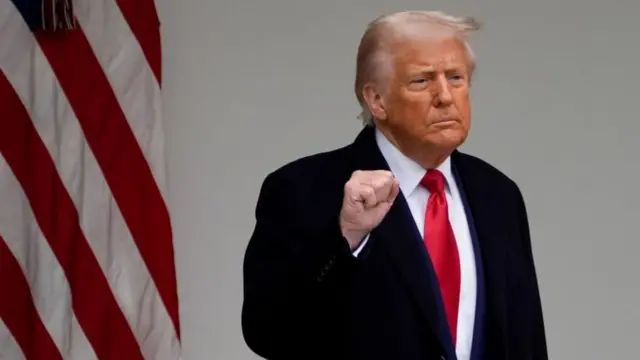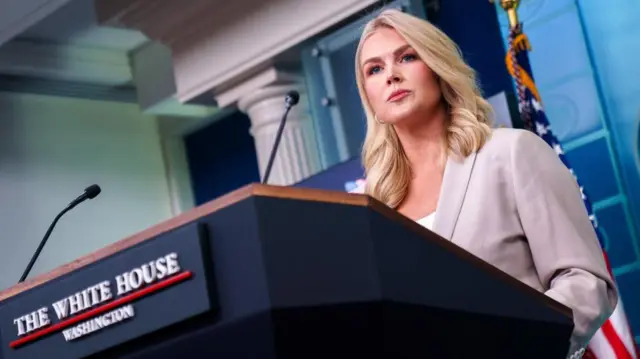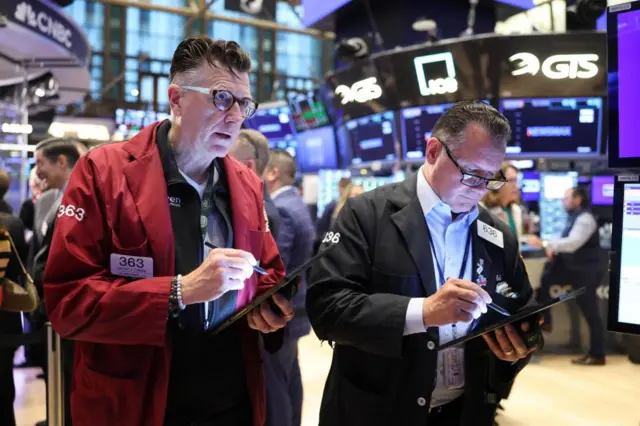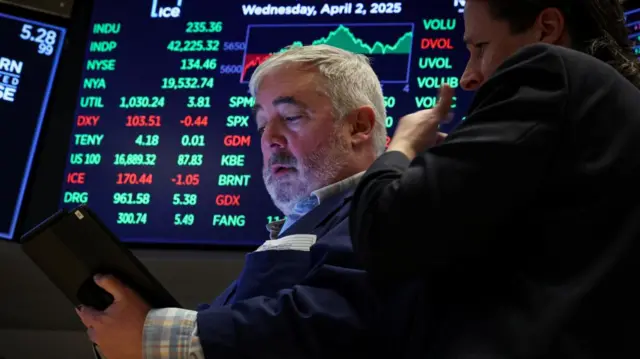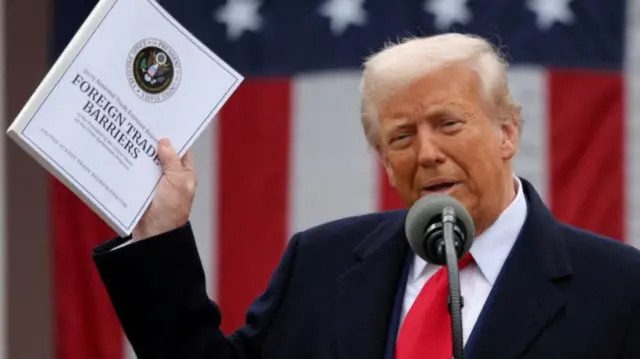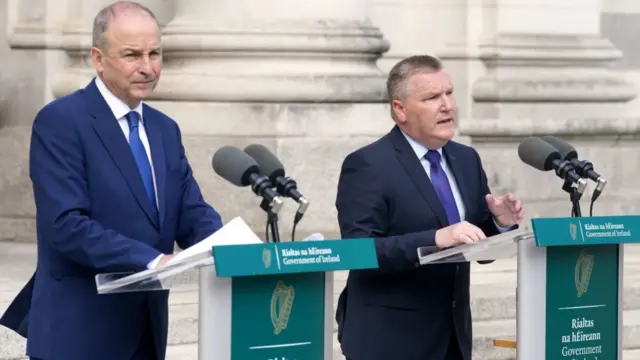Shares in the UK's biggest drug companies have gone uppublished at 15:44 BST 3 April
 Jim Reed
Jim Reed
Health reporter
 Image source, Getty Images
Image source, Getty ImagesShares in the UK’s biggest drug companies, GlaxoSmithKline and AstraZeneca, have gone up today on the London stock market.
It comes after the White House said last night that the pharmaceutical sector, along with semiconductors, copper and some lumber products, would be exempt from "reciprocal" tariffs, external.
It's still not clear exactly what the exemption covers or how long it will last.
Medical products are one of the UK’s biggest export sectors, with shipments to the US worth £6.6bn last year.

